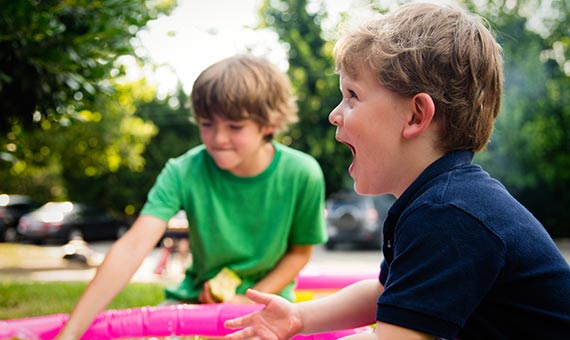Emotional intelligence is the ability to accurately perceive and assess emotion; the ability to access and/or generate sentiments to aid thought; the ability to understand emotion and emotional insight; and the ability to regulate emotions to drive emotional and intellectual growth.
Emotional education is nothing new, and was espoused by the philosophers and thinkers of antiquity, although, as José Antonio Marina (2005) points out, this was usually framed within the field of ethics. The first “educators of feelings” were Socrates, Plato, Aristotle, Epicurus, Epictetus and Seneca (in his work Of Consolation to Marcia, a treatise on pain and how to confront it). And later Descartes (in his Passions of the Soul), Spinoza and Rousseau, with the latter considered Europe’s “great emotional educator”. Invoking this tradition, emotional education is thus deemed instrumental knowledge that must be built into an ethical framework that offers direction, and must extend into education on those virtues that are conducive to realizing fundamental values.

As a result, international recommendations on the design, application and assessment of emotional education programs are of great significance, with the development of emotional intelligence from an early age being key to recognizing our own emotions and understanding those of others. It is important that teachers are able to steer students toward recognizing and managing emotions, and help them develop an interest in the feelings of others, thus enshrining social and emotional skills within standard educational goals. Furthermore, as stated in the FAROS Report (2012), international reports and research have found emotional education programs to be effective. If the recommendations of the same are implemented, boys and girls would be steered toward becoming social and emotionally competent individuals, with self-awareness and positive attitudes not only toward themselves but also toward others. They would be capable of:
- Managing their emotions.
- Identifying their strengths and weaknesses, and working to improve them.
- Achieving goals and resolving problems in a responsible and effective manner.
- Respecting others, empathy, and appreciating diversity.
We can therefore state that educational programs focusing on emotions offer significant benefits. But these benefits may only flourish if society and institutions understand that such aptitudes must be encouraged during early educational stages, while also driving efforts to understand and manage our emotions over the rest of our lives.

We live in complex societies, amid constant change that is immediately global in scope. Said complexity and the potential for subsequent uncertainty demands that we educate citizens to be ready to face new challenges. As Edgar Morin (1999) said, education should teach strategic principles for dealing with chance, the unexpected and the uncertain. We must therefore learn to navigate this ocean of uncertainty by creating archipelagos of certainty, with educational responsibility undeniably playing a key role in this process. We must encourage open mentalities, flexible thinking, tolerance for change, and the ability to accept the new, as well as developing the ability to contribute to innovation and the process of change. This means educating citizens to be creative and to understand how to manage their emotions and feelings. To do this, it is essential that activities be designed and implemented even in the earliest stages of education, while also consolidating such skills in later life, for which a proactive approach could be appropriate. This means teaching students positive attitudes in the classroom that are conducive to developing skills associated with creative thinking and behavior, which in turn support the understanding and acceptance of what we feel and what we experience.
In conclusion, following the Root–Bernstein (2002) approach, we may state that one of the challenges facing education and modern life is “reconciling poetry with physics, art with chemistry, music with biology, dance with sociology, and any other combination of esthetic and analytical knowledge, to thus help people to feel what they want to know and know what they want to feel“. Allowing us to develop the skills to understand and manage our emotions throughout our lives.
Comments on this publication